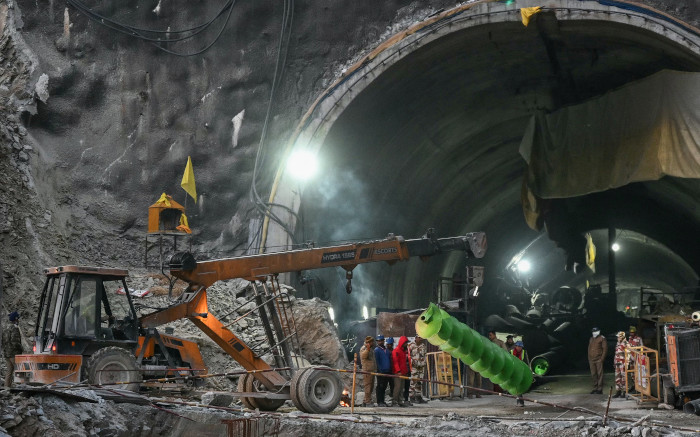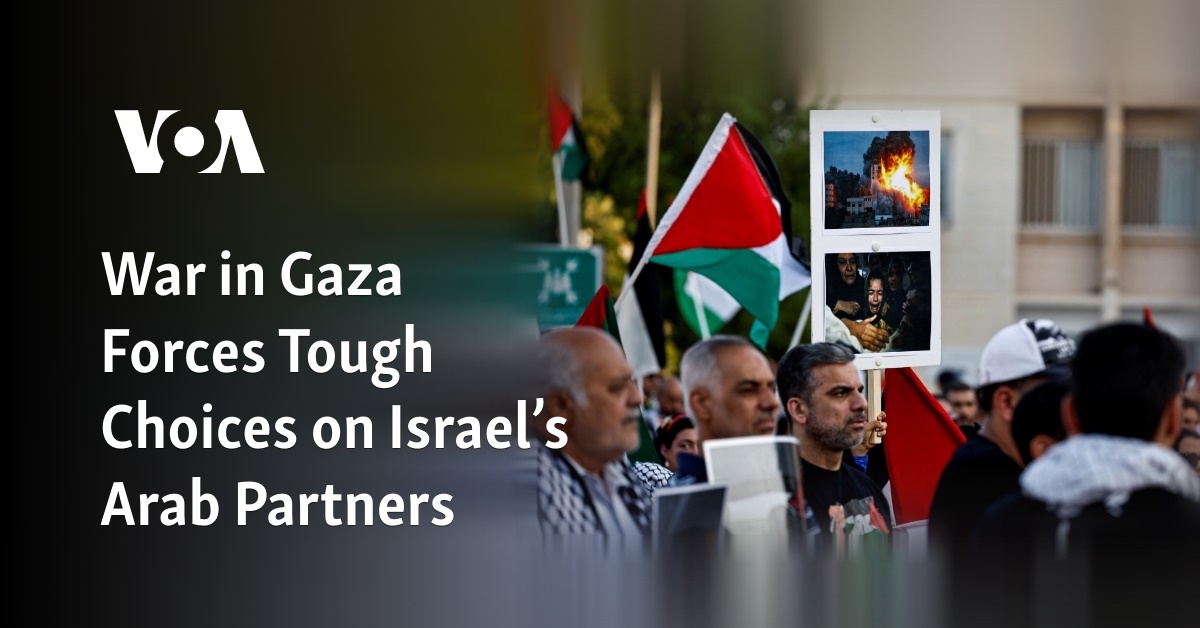
THE HAGUE, Netherlands (AP) — The United Nations' top court on Friday ordered Israel to immediately halt its military offensive in the southern Gaza city of Rafah, but stopped short of ordering a cease-fire for the enclave. Although Israel is unlikely to comply with the order, it will increase pressure on the increasingly isolated country.
Criticism of Israel's conduct in the Gaza war is growing, especially since the focus has turned to Rafah. This week alone, three European countries have announced that they will recognize a Palestinian state, and the chief prosecutor of another international court has requested arrest warrants for Israeli politicians and Hamas officials.
Israeli Prime Minister Benjamin Netanyahu is also under pressure at home to end the war, which was triggered by the invasion of Israel by Hamas fighters, in which 1,200 people, most of them civilians, were killed and around 250 taken hostage. Thousands of Israelis are taking part in weekly demonstrations, calling on the government to reach an agreement to release the hostages, as they fear they are running out of time.
“The accusations of genocide brought by South Africa against Israel before the International Court of Justice in The Hague are false, outrageous and morally reprehensible,” Netanyahu's government said in response to the ruling, maintaining its position that the military has not carried out attacks against civilians and will not do so.
South Africa was able to bring its case because it is a signatory, along with Israel, to the UN Genocide Convention, which contains a clause allowing the court to settle disputes over it.
Although the ruling is a blow to Israel's international standing, the court does not have the police to enforce its orders. In another case on its agenda, Russia has ignored the court's 2022 order to halt its large-scale invasion of Ukraine.
This decision sent a threefold message to Israel: first, it ordered a halt to the Rafah offensive, second, it granted war crimes investigators access to the Gaza Strip, and second, it ordered a massive and immediate increase in humanitarian aid to the region, where parts of it are suffering from famine.
Rafah is in the southernmost part of the Gaza Strip, bordering Egypt. Over a million people have sought refuge there in recent months after fleeing fighting elsewhere. Many of them live in overcrowded tent camps. Israel has threatened to invade Rafah for months, saying it is the last major Hamas stronghold, although several allies have warned that a full-scale attack would spell disaster.
Israel began issuing evacuation orders about two weeks ago when it began operations on the outskirts of the city. Since then, an estimated one million people have left the city, according to the army, as forces push deeper into the interior.
Rafah is also one of the main border crossings for humanitarian aid. According to the UN, aid deliveries there have fallen sharply since the Gaza Strip was opened, although commercial truck traffic continues to flow into Gaza.
The court ordered Israel to keep the Rafah border crossing open, arguing that “the humanitarian situation can currently be described as catastrophic.”
“This legally binding and very specific ruling leaves Israel very little room for maneuver,” said Reed Brody, a veteran human rights lawyer and prosecutor.
Benny Gantz, a popular centrist member of Netanyahu's war cabinet, seemed to suggest that Israel would not change course on Rafah.
“The State of Israel is determined to continue to fight for the release of its hostages and to ensure the safety of its citizens wherever and whenever necessary, including in Rafah,” he said.
“We will continue to act in accordance with international law wherever we operate, protecting civilians as best we can. Not because of the International Court of Justice, but because of who we are and the values we stand for.”
Balkees Jarrah, deputy international justice director at Human Rights Watch, said the court ruling underscored the perilous situation facing Palestinians in Gaza, but warned that the ruling could be ignored unless the international community uses all the leverage at its disposal over Israel.
“The ICJ's decision opens up the possibility of a remedy, but only if governments use their influence, for example through arms embargoes and targeted sanctions, to put pressure on Israel to urgently implement the court's measures,” Jarrah said.
The court's president, Nawaf Salam, read out the verdict as a small group of pro-Palestinian protesters demonstrated outside.
The fears expressed by the court earlier this year regarding an operation in Rafah have “proven to be true,” the ruling states. Israel must immediately cease its “military offensive” in the city and all other measures that could lead to conditions that could lead to the “physical annihilation of all or part” of the Palestinians there.
However, the ruling did not call for a complete ceasefire throughout the Gaza Strip, as South Africa, which has historical ties to the Palestinian people and brought the case to court, had called for last week.
South Africa's Foreign Minister Naledi Pandor said the country's accusations of genocide were “growing stronger by the day”.
“We are really pleased that the court has considered very seriously the matters brought before it and has reiterated that an urgent decision by the court is needed to stop this attack on innocent Palestinians,” she told South African state broadcaster SABC, adding that it was now up to the UN Security Council to decide how to protect the Palestinians.
The ceasefire demand is part of a case accusing Israel of committing genocide during its Gaza campaign. Israel vehemently denies the allegations. The case will take years to resolve, but South Africa wants interim injunctions to protect Palestinians while the legal wrangling continues.
The court ruled on Friday that Israel must grant access to any fact-finding and investigation mission sent by the United Nations to investigate the genocide allegations.
At public hearings at the International Court of Justice last week, South Africa's ambassador to the Netherlands, Vusimuzi Madonsela, called on the panel of 15 international judges to order Israel to withdraw “completely and unconditionally” from the Gaza Strip.
The court has already found that Israel’s military operations pose a “real and imminent danger” to the Palestinian people.
According to Gaza's Health Ministry, which does not distinguish between fighters and civilians, more than 35,000 Palestinians have been killed by the Israeli offensive. The operation has wiped out entire neighborhoods, forced hundreds of thousands of people to flee and triggered famine in parts of the territory.
“This may be the last chance for the court to intervene,” Irish lawyer Blinne Ní Ghrálaigh, part of the South African legal team, told the judges last week.
In January, the ICJ judges ordered that Israel must do everything possible to prevent death, destruction and genocide in Gaza. But the body did not order an end to the military offensive. In a second ruling in March, the court demanded that Israel take measures to improve the humanitarian situation.
The ICJ decides on disputes between states. A few kilometers away, the International Criminal Court brings charges against people it considers to be primarily responsible for war crimes, crimes against humanity and genocide.
On Monday, ICC chief prosecutor Karim Khan said he had asked ICC judges to approve arrest warrants against Netanyahu, Defense Minister Yoav Gallant and three senior Hamas leaders – Yahya Sinwar, Mohammed Deif and Ismail Haniyeh – for war crimes and crimes against humanity in Gaza and Israel.
___
This story has been updated to clarify that the International Criminal Court is not a UN court.
___
Associated Press reporters Gerald Imray in Cape Town, South Africa, and Julia Frankel in Jerusalem contributed. ___
For more AP coverage, visit https://apnews.com/hub/israel-hamas-war






Recent Comments